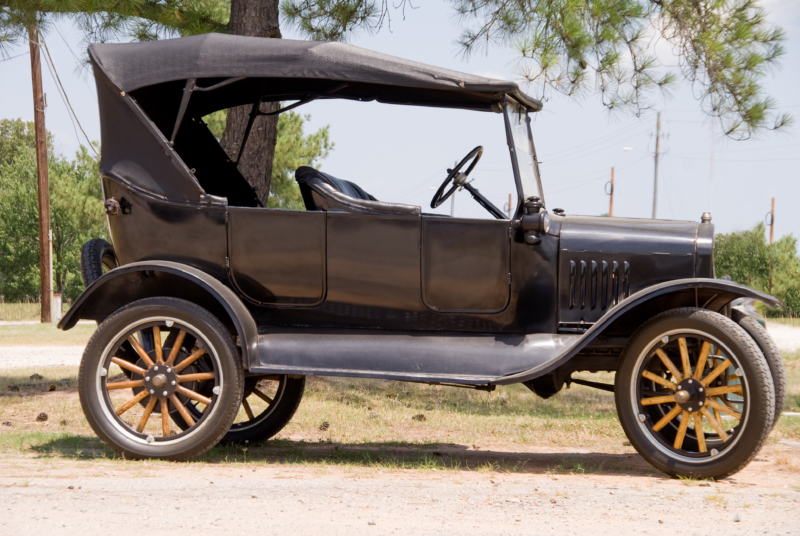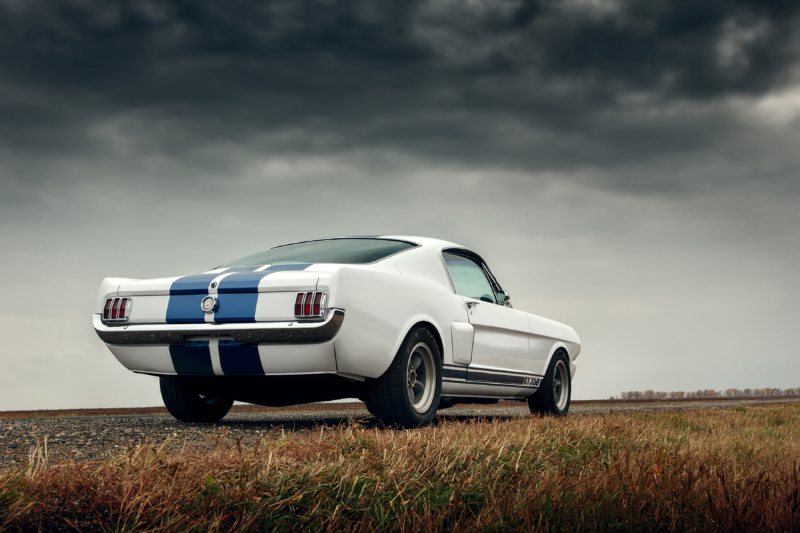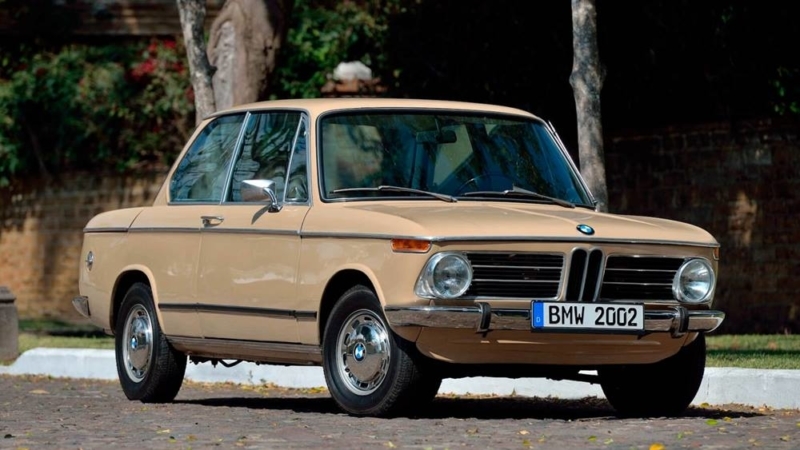From minivans to convertible sports cars, we’ve been naming our cars for as long as we’ve been driving them. But why do drivers – and auto manufacturers – give vehicles names in the first place?
No matter who you are, you can probably identify the following names: Herbie, the Batmobile, Chitty Chitty Bang Bang, General Lee, Bumblebee, Eleanor. That’s right, they’re all cars whose monikers we’ve come to know and love.
But have you ever wondered why we name our cars? The question can certainly inspire us to consider all of the interesting titles we give to our four-wheeled, steel chariots.
This doesn’t mean just the names that we as drivers give to our very own cars, either. Why do car manufacturers name their models in the first place? Is there a method by which cars are named, or is it simply an arbitrary selection?
You might be surprised to know that there are reasons for automotive model names, as given by manufacturers. We’ll dive into that and the history of individuals personally naming their vehicles.
Why Car Manufacturers Choose the Car Names They Do
What’s in a name anyway, especially when it comes to our cars? After all, a Camry by any other name would drive as sweet, right?
While this is not exactly what Shakespeare was talking about with his famous line, the premise remains: if a name has zero impact on a vehicle’s abilities and value, why do manufacturers even bother creating them?
It turns out, there is quite a bit of research (and even a little superstition) that goes into a model’s etymology.
It Started With Simplicity
Ford’s very first vehicle prototype was called the Model A. After that followed the Model B. As you can probably guess, this design pattern continued (with many of these models never going beyond the prototype phase) until the Model T was reached.

Ford wasn’t the only automaker to originally implement a very basic naming scheme, though. Many others chose to label their vehicles according to the specs included, which made for a very easy-to-read model name.
This was the case with the Metzger Motor Car Company of Detroit, which existed in the 1910s. Their Everitt model was produced in three flavors: the Four-30, the Four-36, and the Six-48. Want to guess what those stood for? Yep, they were four- and six-cylinder vehicles with 30-, 36-, and 48-horsepower.
Some Car Names Were Arbitrary
While many alphanumeric vehicle names have had a very specific rationale — like the Everitt Four-36 above — others were created arbitrarily. Take the Shelby GT350 Mustang, for example.

It’s said that Carroll Shelby, in a meeting to name the new 1965 Mustang, became frustrated with the group’s progress. No one could agree on the vehicle’s moniker, so Shelby had someone go out and measure the distance between his office and the next building over.
They soon returned with the number: 350 paces. Thus, the GT350 Mustang was born.
Later on, the GT500 model supposedly followed suit. Rather than naming the vehicle based on horsepower or engine size, Carroll Shelby simply wanted to have the largest number around pasted on the side of the vehicle. As there were already vehicles on the road with 427 and 440 in their names, he simply picked “500” and slapped it after GT. Voila! The GT500 was born.
Then, Alphanumerics Became Important for Marketing
BMW is an auto manufacturer that is known for alphanumeric model names. Most of their vehicles either end or start with a lowercase “i.” This isn’t just a cutesy addition to the name, though (even in the age of iPhones and iPods); it was actually an important part of their vehicle marketing.
In 1969, BMW first used the lowercase letter with their introduction of the 200tii model. The letters stood for “touring international, fuel-injected,” and allowed customers to know whether they were choosing a vehicle that used fuel injection rather than carburetion.

In the 70s, this extended to additional models from the automaker, such as the 325i and the 528i. While fuel injection is standard now and the notation isn’t necessary, BMW has retained the “i” across their line.
“Name-Names” Can Cause Problems
It’s generally believed that alphanumeric model names — such as the BMW models mentioned above — indicate a level of luxury. This is especially true when compared to a vehicle that bears a “name-name,” or brand name.
The latter certainly has the potential to be timeless, but can easily cause problems for manufacturers as time goes on.
Brand Car Names Are Difficult for Future Editions
Sometimes, a manufacturer wants to improve upon an existing model — without actually creating an entirely new vehicle that they will then need to rebrand and add to their lineup. When their nomenclature involves alphanumerics, this can be simple.
For instance, it’s not too difficult to go from a Model A to a Model C, or from a Four-30 to a Four-36. While the vehicle is obviously an improvement, it isn’t expected to have an entirely unique body type or design.
However, when you’re talking about a brand name vehicle, the future shifts are more difficult.
For instance, where do you go with a Nissan Armada? Sure, there are different trims to choose from — SE, LS, and Platinum — but this can be both confusing for the customer and limiting for the manufacturer.
They Encourage Assumptions
Here are two model names for you: Flicker and VX170.
Without knowing anything about these vehicles, which one would you expect to be a luxury sedan?
It doesn’t matter that both names are made up: we pretty much guarantee that you expected the VX170 to be the luxury car. Why, though?
Historically, brand name vehicles are tricky. A name has to be picked which is both timeless and open for interpretation, without being “cutesy” or easily outgrown. This presents a challenge to auto manufacturers, many of which simply opt for alphanumeric names.
(Case in point: you might be surprised to learn that all 10 of the JD Power Top 10 Luxury Cars right now have alphanumeric names.)
Why We Personally Name Our Cars
Maybe you don’t really care how a Silverado came to be called a Silverado, or why your Audi Q8 has the name it does. Maybe you’re more interested in why your dad’s old blue shop truck is named Betsy, or what motivated you to call your Civic “Mr. Bigglesworth.”
Turns out, there’s quite a bit of science behind why drivers feel compelled to name their cars.
We Care for Them More
The practice of giving non-human entities human characteristics is called anthropomorphism, and comes into play when we talk to our cars or even accentuate our cars’ features (such as adding those headlight eyelashes).
According to researchers at Harvard, this is also the reason that many drivers give their cars names. And it plays into how we then treat those vehicles in the years to come.
Along with anthropomorphism comes further humanization of our belongings. For instance, when we name our car, we may subconsciously want to take better care of it. This might mean changing the oil and washing it more often, or souping it up over the years.
It’s Tradition
If the vehicle in your driveway has “his” or “her” own moniker, you’re not alone.
Maybe you grew up knowing your parents’ cars by name, or simply came to love the named Hollywood vehicles over the years. Either way, the idea of giving your car a name of its own might simply be a matter of tradition for you.
According to some surveys, as many as 25% of people admit to naming their cars.
Of course, there are names that are significantly more popular than others. Based on that same survey by AutoNation, the three most popular car names are Betsy, Bessie, and Betty. This is followed by The Beast at number four, Sally in fifth, and Bertha as number six.
It’s easy to see why manufacturers name their vehicles — whether that means giving them a brand name or something simple and alphanumeric — as a matter of marketing. Determining the reason your dad’s Subaru is named Lucy, though? That might be a bit more difficult to figure out.
About The Author
RateGenius
A better way to refinance your auto loan. RateGenius works with 150+ lenders nationwide to help you save money on your car payments. Since 1999, we've helped customers find the most competitive interest rate to refinance their loans on cars, trucks, and SUVs. www.rategenius.com
;)




